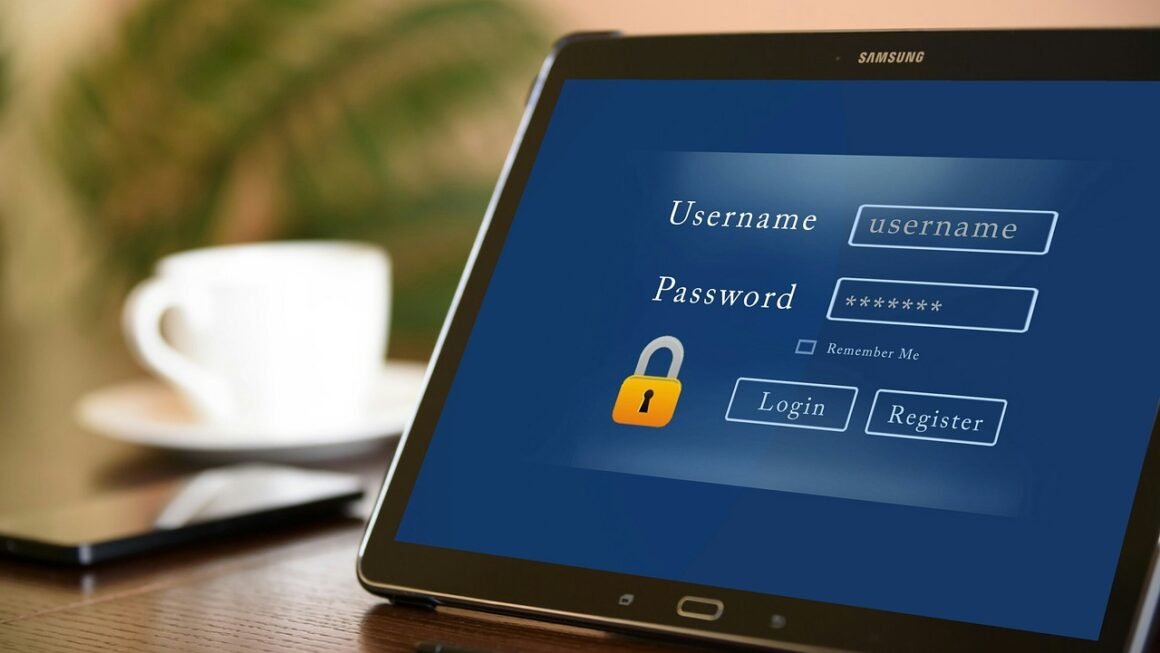Imagine browsing the internet with a cloak of invisibility, shielding your personal data from prying eyes, unlocking geographically restricted content, and enjoying a secure connection on public Wi-Fi. That’s the power of a Virtual Private Network, or VPN. But what exactly is a VPN, and how does it work to protect your digital life? This guide will delve into the world of VPNs, exploring their benefits, features, and how to choose the right one for your needs.
What is a VPN and How Does it Work?
Defining a Virtual Private Network (VPN)
A VPN, or Virtual Private Network, creates a secure, encrypted connection over a less secure network. Think of it as a private tunnel between your device and the internet. All your internet traffic is routed through this tunnel, masking your IP address and encrypting your data.
How VPNs Function Technically
- Encryption: A VPN encrypts your data, making it unreadable to anyone intercepting it. This encryption process is vital for protecting sensitive information like passwords, financial details, and personal communications.
- IP Address Masking: Your IP address is like your digital fingerprint. A VPN hides your real IP address and replaces it with one from the VPN server, making it difficult to track your online activity.
- Server Network: VPNs have servers located in various countries. You can choose a server location to access content as if you were physically present in that region.
- Tunneling Protocols: VPNs use various tunneling protocols to create the secure connection. Common protocols include OpenVPN, IKEv2/IPsec, WireGuard, and L2TP/IPsec. Each has its own strengths and weaknesses regarding speed, security, and compatibility. WireGuard is often praised for its speed and modern security.
Example Scenario
Let’s say you’re connecting to a public Wi-Fi network at a coffee shop. Without a VPN, your data is vulnerable to hackers on the same network. With a VPN, your data is encrypted, and your IP address is masked, making it significantly harder for someone to intercept your information.
Benefits of Using a VPN
Enhanced Security and Privacy
- Protection on Public Wi-Fi: Public Wi-Fi hotspots are notorious for being insecure. A VPN encrypts your data, protecting it from hackers attempting to steal your information.
- Data Encryption: VPNs encrypt all your internet traffic, including browsing history, emails, and downloads, preventing eavesdropping by ISPs or malicious actors.
- Anonymity: By masking your IP address, a VPN makes it difficult to track your online activity, enhancing your privacy.
- Circumventing Censorship: In countries with strict internet censorship, a VPN can bypass restrictions and provide access to blocked websites and content.
Accessing Geo-Restricted Content
- Streaming Services: Many streaming services like Netflix, Hulu, and BBC iPlayer have different content libraries depending on your location. A VPN allows you to access content that is not available in your region. For example, someone in the US could connect to a UK server and watch BBC iPlayer.
- Bypassing Regional Locks: Some websites or online games may have regional locks that prevent users from certain countries from accessing them. A VPN can bypass these restrictions.
- Example: Imagine wanting to watch a specific movie on Netflix only available in Japan. By connecting to a Japanese VPN server, you can access the Japanese Netflix library and stream the movie.
Business and Remote Work Advantages
- Secure Remote Access: VPNs allow employees to securely access company resources from remote locations, ensuring data confidentiality and integrity.
- Data Protection: Businesses can use VPNs to protect sensitive data transmitted over the internet, especially when dealing with confidential client information.
- Reduced Risk of Data Breaches: By encrypting network traffic, VPNs reduce the risk of data breaches and cyberattacks targeting company networks.
Choosing the Right VPN
Key Features to Look For
- Strong Encryption: Look for VPNs that use AES-256 encryption, which is considered one of the most secure encryption standards.
- No-Logs Policy: A reputable VPN should have a strict no-logs policy, meaning they do not track or store your online activity. Read the privacy policy carefully to confirm this.
- Server Locations: Choose a VPN with servers in multiple countries to access a wider range of content and improve connection speeds.
- Speed and Bandwidth: Opt for a VPN that offers fast connection speeds and unlimited bandwidth for seamless streaming and browsing.
- Multiple Device Support: Ensure the VPN supports multiple devices so you can protect all your devices with a single subscription.
- Kill Switch: A kill switch automatically disconnects your internet connection if the VPN connection drops, preventing your data from being exposed.
- User-Friendly Interface: The VPN app should be easy to use and navigate, even for beginners.
Types of VPNs
- Commercial VPNs: These are subscription-based VPN services that offer a wide range of features and server locations. Examples include ExpressVPN, NordVPN, and Surfshark.
- Free VPNs: While free VPNs may seem appealing, they often come with limitations, such as slower speeds, data caps, and potential security risks. Many free VPNs log and sell your data. It is generally recommended to avoid them if possible.
- Corporate VPNs: Businesses use corporate VPNs to provide secure remote access to their networks for employees.
- Router-Based VPNs: You can set up a VPN directly on your router, protecting all devices connected to your home network.
Comparing VPN Providers
| Feature | ExpressVPN | NordVPN | Surfshark |
| ——————- | ———- | ——– | ——— |
| Encryption | AES-256 | AES-256 | AES-256 |
| No-Logs Policy | Yes | Yes | Yes |
| Server Locations | 94 | 60 | 100+ |
| Speed | Excellent | Excellent| Very Good |
| Price (Monthly) | ~ $12.95 | ~ $11.99 | ~ $12.95 |
| Multiple Devices | 5 | 6 | Unlimited |
- Disclaimer: Prices are approximate and subject to change.
Setting Up and Using a VPN
Installing the VPN App
Most VPN providers offer easy-to-use apps for various operating systems, including Windows, macOS, iOS, and Android. Simply download the app from the VPN provider’s website or app store and follow the installation instructions.
Connecting to a VPN Server
- Launch the VPN app.
- Choose a server location. You can select a server based on your desired location or choose the “fastest server” option for optimal speed.
- Click the “Connect” button. The app will establish a secure connection to the VPN server.
- Verify the Connection: After connecting, verify your IP address to ensure it matches the VPN server location. You can use online tools like “whatismyipaddress.com” to check your IP address.
Troubleshooting Common Issues
- Slow Connection Speeds: Try connecting to a different server location.
- Connection Drops: Check your internet connection and try restarting the VPN app. Ensure your firewall or antivirus software isn’t blocking the VPN.
- Website Blocking: Some websites may block VPN traffic. Try connecting to a different server or contacting the VPN provider’s support team.
- DNS Leaks:* Perform a DNS leak test to ensure your DNS requests are being routed through the VPN server. Many VPN providers have built in leak protection, but it’s important to verify.
Conclusion
A VPN is a powerful tool for enhancing your online security, privacy, and freedom. By encrypting your data, masking your IP address, and allowing you to bypass geo-restrictions, a VPN can protect you from cyber threats, access restricted content, and enjoy a more private online experience. Choosing the right VPN provider and understanding how to use it effectively are essential steps in safeguarding your digital life. Take the time to research and select a reputable VPN that meets your specific needs, and enjoy a safer and more open internet.



